The U.S. victory in court on Wednesday makes the prospects for Julian Assange at October’s appeal hearing murky at best, writes Alexander Mercouris.
By Alexander Mercouris
in London
Special to Consortium News
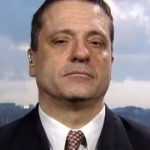
In my previous letter I discussed how Julian Assange’s case had taken a strange and worrying twist. The results of Wednesday’s High Court hearing is even more troubling for the WikiLeaks publisher.
The High Court in July granted the U.S. government permission to appeal the Jan. 4 decision of District Judge Vanessa Baraitser to refuse the U.S. government’s request for Assange’s extradition to the United States, where he faces charges under the Espionage Act 1917 and for conspiracy to commit computer intrusion.
The grant of permission was however limited to essentially a single ground: whether Baraitser erred by failing to provide the U.S. government with an opportunity to provide her with ‘assurances’ about the conditions of detention in which Assange would be held if he were extradited and convicted in the United States.
Permission to appeal on another ground, whether Baraitser was right to base her assessment of Assange’s health, and of the risk that he might commit suicide if he were to be kept in rigorous conditions of confinement in the United States, on the evidence of Professor Michael Kopelman, was however refused.
The U.S. government would not accept this decision, and in a most unusual step, obtained a hearing in the High Court on Wednesday in order to appeal that part of the High Court’s decision which had refused permission to challenge the part of the appeal which concerned the issues of Assange’s health and the evidence of Professor Kopelman.
As previously reported by Joe Lauria, at this hearing the High Court reversed its earlier decision to refuse the U.S. government permission to appeal the matter of Assange’s health.
This means the U.S. government has now obtained permission to appeal on all the grounds it has sought. The full appeal will be heard by the High Court on Oct. 27 and 28.
In my previous letter I said that both grounds of appeal looked threadbare.
There had been nothing to prevent the U.S. government from giving its ‘assurances’ (that it would not put Assange in special confinement and would let him serve his sentence in Australia) to Baraitser at the substantive hearing last September.
Its attempt to do so now, months after Baraitser’s decision had been made, was an attempt to use the appeal process in order to introduce the ‘assurances’ as new evidence in the case, so as to change a decision which had already been made. This makes the ‘assurances’ new evidence, which is normally inadmissible on appeal.
As for Baraitser’s decision to base her assessment of Assange’s health and of his potential risk of suicide on the evidence of Professor Kopelman, that was an assessment for her to make as the trial judge in the case, and there is no reason why the High Court on appeal should seek to interfere in it. Mr. Justice Swift, the High Court Judge who refused the U.S. government permission to appeal on this ground in July, was of precisely this view.
Holroyde’s Reasons for Extending Permission to Appeal
It is this decision of Swift which the High Court at Wednesday’s hearing has reversed. In doing so, the High Court admitted it is highly unusual for an appeal court to question a trial judge’s assessment of the evidence. However in this case supposedly it is ‘arguable’ that it should do so.
Lord Justice Holroyde, a Court of Appeal Judge senior to Mr. Justice Swift, explained the decision in this way:
“I bear very much in mind that the District Judge saw and heard from all the expert witnesses and made her assessment of Professor Kopelman with that advantage, which an appellate court cannot share. I accept that, in general, this court rightly takes a cautious approach when considering the findings of fact. They may consider challenges to findings of fact, including assessments made by the judge below. It is however, very unusual for an appellate court to have to consider the position of an expert witness whose written evidence have been found to be misleading, but whose opinion has nonetheless been accepted by the court below. The general approach does not operate as a complete bar for this court to find that the judge below was wrong in her assessment of the evidence. I have come to the conclusion that it is here at least arguable that the present case is one in which such a power may operate.”
Holroyde then went on to say that in his opinion Baraitser might have given a “more critical consideration” of Professor Kopelman’s evidence.
“For those reasons, I respectfully disagree with Mr Justice Swift. I would grant the appeal on ground three. It will be for the court in the appeal hearing to determine the admissibility of the initial evidence on which the appellant seeks to revive.”
No Mention of Assange Relationship
This issue has arisen because of an omission of a fact in Professor Kopelman’s first witness statement. In that statement Kopelman omitted to mention the fact that Assange was in a relationship with Stella Moris, with whom he has had two children.
Kopelman omitted this fact from his witness statement because of Moris’s understandable anxiety for privacy for her children. Kopelman, sympathetic to Moris’s anxiety but conscious of his duty to the Court, consulted Assange’s lawyers. They apparently agreed with him that the fact of Moris’s relationship with Assange, and the fact that they had had two children together, could be kept out of the witness statement without this diminishing its evidential value, and without this detracting from Kopelman’s duty to the Court.
It was quickly realised that this was a mistake, and in a second witness statement, which is Kopelman’s full expert report to the Court, he disclosed Assange’s relationship with Moris, and the fact that they had had two children together. This second witness statement was provided to the Court last year, before the start of the substantive hearing in the autumn, and was seen by Baraitser before the hearing began.
Baraitser accordingly made her decision to refuse extradition in the full knowledge that Kopelman’s first witness statement was incomplete, and that at the time when it was made Kopelman was concealing the existence of Assange’s relationship with Moris, and of the fact that the two had had children together. She was also aware of the reasons why this was done. In her judgment Baraitser both acknowledged the fact of the concealment, and excused it:
“In my judgment, professor Kopelman’s decision to conceal [Assange and Moris’s] relationship was misleading and inappropriate in the context of his obligations to the court, but an understandable human response to Ms. Moris’s predicament…..In short, I found Professor Kopelman’s opinion to be impartial and dispassionate; I was given no reason to doubt his motives or the reliability of his evidence.”
Holroyde and the High Court now say that this approach of Baraitser’s was ‘arguably’ wrong, and that Baraitser should have taken a ‘more critical consideration’ of Kopelman’s evidence than she did.
Open Route for U.S. to Give ‘Assurances’
At the October hearing, the question of the state of Assange’s health, and of the degree to which he really is a suicide risk, will be reconsidered. At that hearing the U.S. government can give its ‘assurances’ to the Court, which it did not previously give to Baraitser. Assuming the Court accepts the ‘assurances’, an order for Assange’s extradition to the U.S. may be made. If an appeal of that order to the Supreme Court is refused, Assange can be handed over to the United States, and the British authorities can wash their hands of the matter.
This is not a foregone conclusion. The High Court at the hearing in October is not bound to follow the opinions expressed by Holroyde at the hearing on Wednesday. His forthright comments show that he will not be part of the appeal panel which will hear the appeal in October.
However, though Holroyde was careful to say that the final decision is for the appeal panel in October to make, his words strongly imply that he thinks Baraitser should have handled Kopelman’s evidence differently.
The fact that Kopelman sought advice from Assange’s lawyers, who are technically officers of the Court, to my mind show that he did not intend to mislead the Court. As Baraitser put it, his actions, and those of the lawyers, were “an understandable human response to Ms. Moris’s predicament”. No harm was intended or done. Though a mistake was made, it was corrected shortly after, and at the time of the hearing Baraitser was in possession of all the facts.
Baraitser, as the trial judge, was therefore in a position to assess the evidence, which Holroyde admits it was her right to do. Having assessed the evidence, and in full knowledge of all the facts, including those of the so-called “concealment.” she chose to give weight to the evidence of Kopelman, which she found to be “impartial and dispassionate”. There is no reason why an appeal court would want to interfere with such an approach, and as Holroyde admits, and as Swift found, ‘normally’ it would not do so.
Privacy of the Family an ECHR Protected Human Right
There is moreover an absurd dimension to this whole affair. Assange, at the time when he began his relationship with Moris, was the target of round-the-clock surveillance by the U.S. and British authorities, who were spying on him in the Ecuadorian embassy, even to the point where they were observing his interactions with his lawyers.
It beggars belief that the U.S. and British authorities were unaware of Assange’s relationship with Moris, or of the fact that he had had two children by her.
At the time Kopelman drafted his first witness statement the extent to which Assange had been under placed under surveillance was known to Assange’s lawyers, and to Assange and Moris themselves. They would have known, or at the very least guessed, that the U.S. and British authorities were aware of Assange’s relationship with Moris, and of the fact that he had had two children by her. This is borne out by the testimony in a Spanish court last year that U.S. intelligence officers ordered the confiscation of one of the children’s nappies to prove Assange’s paternity by testing the DNA.
That makes it impossible that the omission of a reference to the relationship between Assange and Moris in Kopelman’s first witness statement was intended to conceal this relationship from the U.S. and British authorities, and from the Court, and that there was any intention to mislead the Court. Had such an attempt to conceal the relationship and the existence of the children from the Court been made, it would have failed, with catastrophic consequences for Assange’s case.
Obviously the concealment was intended, not to mislead the Court, but to conceal the existence of the relationship from Britain’s notoriously salacious tabloid press, who are able to access Court documents, such as Kopelman’s witness statement, which are documents of public record.
In other words it was intended to protect the family’s privacy, just as Kopelman, the lawyers, and Moris, say that it was.
The way it was done was certainly a mistake, but one made, as Baraitser says, for understandable human reasons, and clearly intended as a temporary measure to protect the privacy of the family until the moment came for full disclosure to the Court. This took place at a bail hearing in April 2020, months before the substantive hearing before Baraitser in the autumn of that year, and months before the U.S. filed its second superseding indictment, which was the indictment actually before the Court when the case was tried.
As Baraitser rightly says, the fact that these steps to protect the privacy of the family were taken, (privacy being a human right pursuant to Article 8 of the European Convention on Human Rights, which is part of British law) does not mean that Kopelman is not an “impartial and dispassionate” witness, even if some of the steps which were taken were wrong. It is wrong to say otherwise.
A Dark Turn and a Clouded Prospect
In my previous letter I wrote of the relentless way in which the U.S. government has pursued Julian Assange. Moreover its refusal to take no for an answer, and its readiness to resort to unusual procedural devices in order to get its way, looks from the latest decision to be starting to bear fruit. I doubt any other party would be able to bend events to its will in such a way.
Regardless, the case has taken a dark turn, and the prospects in October are clouded.
Alexander Mercouris is a legal analyst, political commentator and editor of The Duran.
The views expressed are solely those of the author and may or may not reflect those of Consortium News.
Please Support Our
Summer Fund Drive!

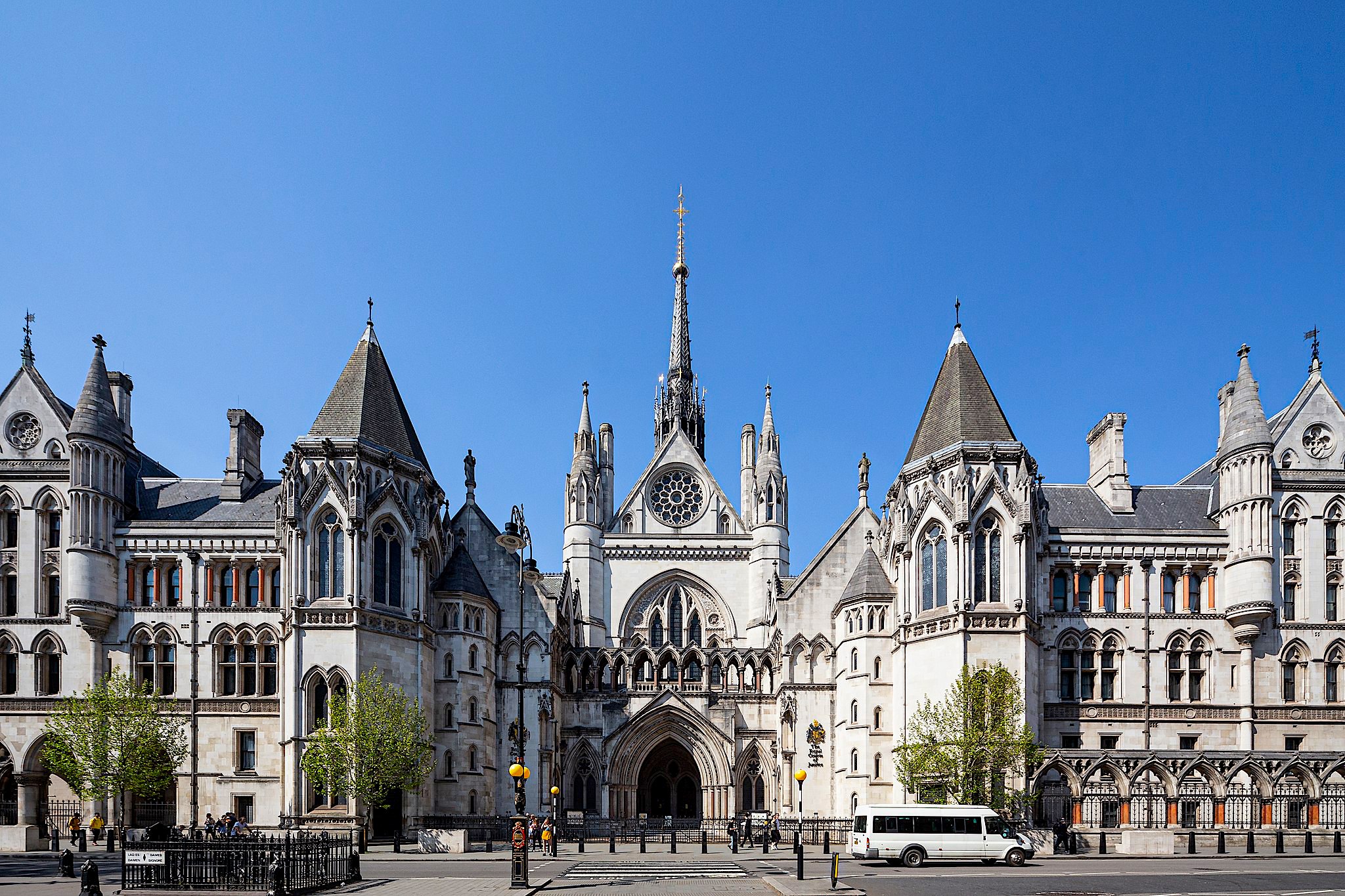

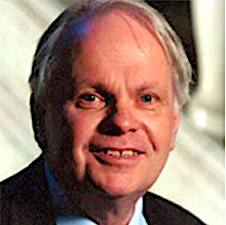
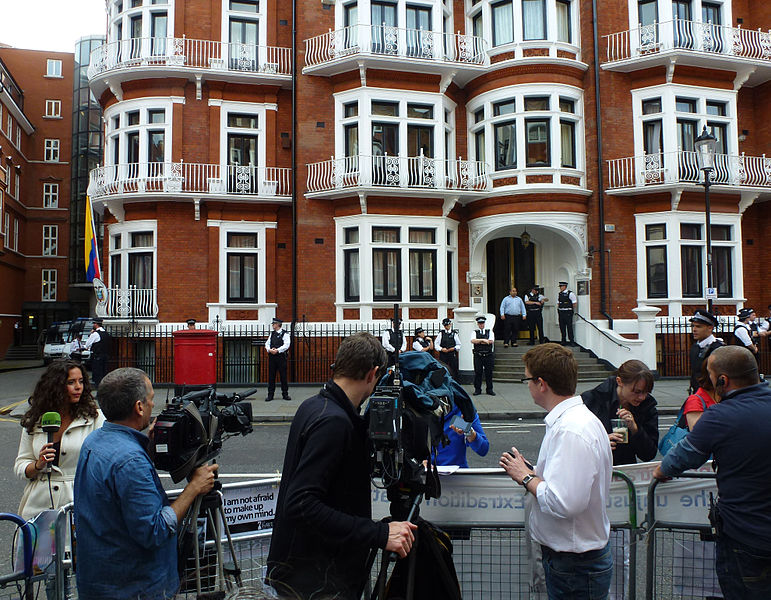
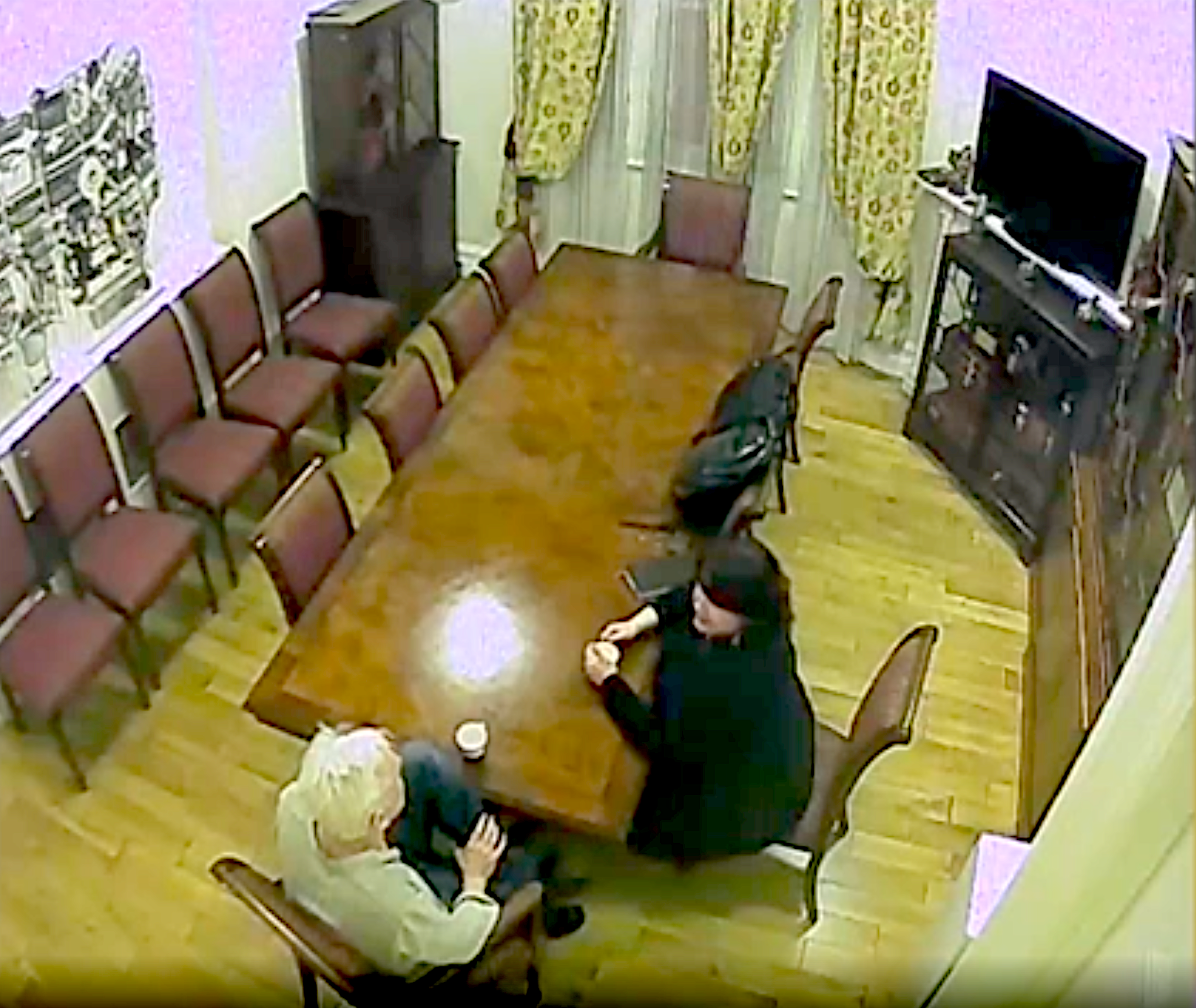

If this ages old colonialist system doesn’t bite the dust soon, it will drag us all down into oblivion with it. That’s what this fight is all about. Those who profit off of the crimes committed in service to the ruling class are desperate to keep the lid on the information that will bring about their destruction. Assange began that process and is paying the price for his insolence. If he is not able to carry that work forward, we had better do it for him.
“A picture is worth a thousands words.” With these endless appeals, the US’ strategy is to perpetually delay Assange’s release so his deteriorated physical appearance and mental state doesn’t enrage the public. The US and their lapdogs hope he dies in prison so they can avoid shocking photos and interviews of Assange. The British appeals court can prove they stand for justice by denying the appeal WITH PREJUDICE, so they can’t keep trying for a bite at the apple.
Kamela Harris, the de facto commander in chief, is a prosecutor at heart. Compassion does not dwell therein
An excellent analytic prognoses of what might be in store for Assange. The humanitarian aspect is an important consideration.But can we expect “British Justice” to be fair and independent ? I wonder.
British Justice doesn’t exist anymore.
~
Therefore, the UK is dissolved.
~
Without justice, peace is impossible.
~
Perhaps it is a metaphor, but I think not.
Logic dictates when justice gets pushed off to the side,
then all bets are off and it is every man for himself.
Every man and every women.
~
Seriously justice in the UK, whatever that is, I don’t Scotland belong, nor Ireland……justice in them places is a total joke now. A ridiculous joke of ignominy over the top facilitated by those coming out of the holy land who try to blame everyone else for all their troubles.
~
the troubles have just begun and the UK is toast!
Sorry, but the facts are the facts.
Justice cannot be denied!
~
Peace is easy,
BK
BK
It is curious that much of the media blamed Trump for trying to extradite Assange, claiming that Obama did not try to extradite him since that would affect the NY Times and other publishers (it was not that between 2010 and 2013, Manning was imprisoned, tortured, tried and finally sentenced to 35 years, by which time Assange was safe in asylum in the Ecuadorian embassy).
Now Biden comes in, Siggy (star witness) recants his testimony against Assange (giving Biden leeway to drop the case). Instead he doubled down. Don’t think it had anything to do with Manning, but rather exposing the Democratic Party corruption. That cannot be tolerated.
FREE JULIAN ASSANGE NOW.
“Without a Free Press, there can be no Democracy”
Thomas Jefferson
A poem on 81221 if you don’t mind….
The truth doesn’t matter any more in the minds of a few.
They shed their view with dismissal of hope in the minds of others.
Justice is thrown off to the side.
The scales are ground into the ground….
it is all done out of anger…..
as it is was justified in their minds.
~
Ah well, the minds of a few will have to learn
Justice cannot be denied.
The scales have mettle.
Justice is like a law.
It is like gravity.
It cannot be
denied.
~
Precarious times we live in…
especially for the few
who don’t understand
justice…..cannot be
denied.
~
Without justice there can be no peace.
Peace is easy.
BK
It appears the Brits may be exercising a kind of corollary of the Iraq inverted doubletalk, namely, fixing facts around a pre-conceived policy. Irony abounds!
If nothing else, they demonstrate their basic lack of gumption or strength of character, let alone honor (despite a propensity to bestow honorifics upon themselves).
May this new low bar, if propped-up, rise to trip them in their self-destructive folly many, many times in the years ahead.
Thanks to M. Mercouris for his reporting that can clearly be understood even here in the Stateless states.
IMHO, it is not a “lack of gumption” but a sincere, vehemently kept conviction that commoners have no business prying secrets from the State.
Holyrode’s explanation for offering the chance for the US to appeal the obvious fact of its own, inhumane conditions in its prisons is like offering Assange the chance to drown without getting wet. The arc of justice is not slow, it’s merely non-existent. We either turn the tables on the powers that be or the tables become the racks of our re-education into the bad faith of late-stage, authoritarian capitalism.
Assange’s persecution is a stain upon the United States, but even more than that, it is a blow against the people of the world, freedom of the press and hope for all humanity.
The US Women’s 4X400 Relay team dropped the Baton so they were disqualified. Then there was a sudden reversal of the disqualification so they got a do-Over. Does anyone think russia would get a do-Over in that situation?
When one has biased prosecutors and judges, as one clearly has in Assange’s case, then the rule of law is a farce.
The rule of law has always been a farce because there is no such thing as an unbiased arbiter. The entire system is predicated on that impossible condition being a given, so of course rampant abuse and misuse is the result.
And yet there have been relatively fair-minded people in such positions. As well, there have also been no-holds-barred, vindictive apparatchiks, as apparently we have the case here.
The legal arguments and judgements are being massaged to fit the (policy) decision that has already been made. Assange is to be extradited without further hinderance.
TEP.
No wonder the Yankx and the Brits get along so well: two peas in the same rotten pod.
Don’t leave Australia out of that rotten pod. This is a five eyes collusion from beginning to end to cover criminal activities of people who still hold power.
This tragedy must stop. Who can do that?
A brilliant honest, productive man has been treated inhumanly with mass malpractice of the law and the justice systems of wealthy advanced countries. Shame on all of you. The U.S. certainly does not represent my will in killing Julian Assange slowly and painfully.
This, of course, has nothing what-so-ever about “the rule of law” because there is only one law in Western civilization – the law of power. Assange has no chance of ever being free again he is already destroyed by torture and deprivation of basic human needs. He will continue to be paraded around to keep people from getting ideas.
We live in an colonial expansionist genocidal settler state, where human live is far less valuable than power.
“We live in an colonial expansionist genocidal settler state, where human live is far less valuable than power.”
“We” is often a function of assumption in simultaneous denial and recognition of “the other”, thereby facilitating self-delusions that human life is less valuable than power is a constant, thereby facilitating the transcendence of “we” by “the other”.
“Worrying Turn in Assange Case”
Worry as a consequence of wanting to believe sometimes known as hope for those immersed in linear mazes ?
In professional analysis there is a cautionary question – “Do you think your opponents are a stupid as you are ?”
The rule of law is a cloak worn by the rule of some, and the sum of some include some who may not be not as stupid as you are, even although they also recognise that the cloak is one that they prefer to “act” in, thereby encouraging the increase of worry on the part of the opponents.
Consequently some might deem the best utility of Mr. Assange is if he is rendered as a martyr, a monument or as was the case with Mr. Guevara as a T-shirt. The quality of mercy is not strained in theatrical productions and other spectacles, whilst life is not a linear theatrical production despite the hopes and effots of opponents to evangelise notions of sole/primary agency, but in appropriate contexts life also emulates Mr. Schroedinger’s observation that phenomena do not require to be perceived to exist, rendered less likely by the efforts of those engaged in supplication who tend to encourage the vindictiveness of opponents, particularly those immersed in coercive social relations.
Let me suggest therefore that to date it is not a “turn” excepting in a linear theatrical sense, but a holding of course in furtherance of purpose.
HUH?
“…Regardless, the case has taken a dark turn, and the prospects in October are clouded…”
They certainly are. One can only agree with that. But then all this hair splitting is to be expected when someone is being set up by the state. What the US wants it usually gets particularly when assisted by the UK. Hence the one sided so called extradition agreement, arranged under a Blair gpvernment.
wikipedia:
The Galileo affair (Italian: il processo a Galileo Galilei) began around 1610[1] and culminated with the trial and condemnation of Galileo Galilei by the Roman Catholic Inquisition in 1633. Galileo was prosecuted for his support of heliocentrism, the astronomical model in which the Earth and planets revolve around the Sun at the centre of the universe.
In 1610, Galileo published his Sidereus Nuncius (Starry Messenger), describing the surprising observations that he had made with the new telescope, among them, the Galilean moons of Jupiter. With these observations and additional observations that followed, such as the phases of Venus, he promoted the heliocentric theory of Nicolaus Copernicus published in De revolutionibus orbium coelestium in 1543. Galileo’s discoveries were met with opposition within the Catholic Church, and in 1616 the Inquisition declared heliocentrism to be “formally heretical.” Heliocentric books were banned and Galileo was ordered to abstain from holding, teaching or defending heliocentric ideas.[2]
Galileo went on to propose a theory of tides in 1616, and of comets in 1619; he argued that the tides were evidence for the motion of the Earth. In 1632 Galileo published his Dialogue Concerning the Two Chief World Systems, which implicitly defended heliocentrism, and was immensely popular. Responding to mounting controversy over theology, astronomy and philosophy, the Roman Inquisition tried Galileo in 1633 and found him “vehemently suspect of heresy”, sentencing him to indefinite imprisonment. Galileo was kept under house arrest until his death in 1642.
It is also interesting to compare the fate of three contemporary exponents of heliocentrism. Galileo had influential friends, so he was treated relatively leniently with exile to rural Tuscany. Giordano Bruno, independent, obstinate (did not recant) and without a patron, was burned on a stake. Johannes Kepler was THE imperial mathematician (i.e. on a retainer from Holy Roman Empire to provide horoscopes based on state-of-the-art astronomical observations and mathematical formulae), while not without troubles (most of all, from his fellow Lutherans), Roman Inquisition did not even try to raise an issue with him.
Assange, Manning and the number of others are in Giordano Bruno category.